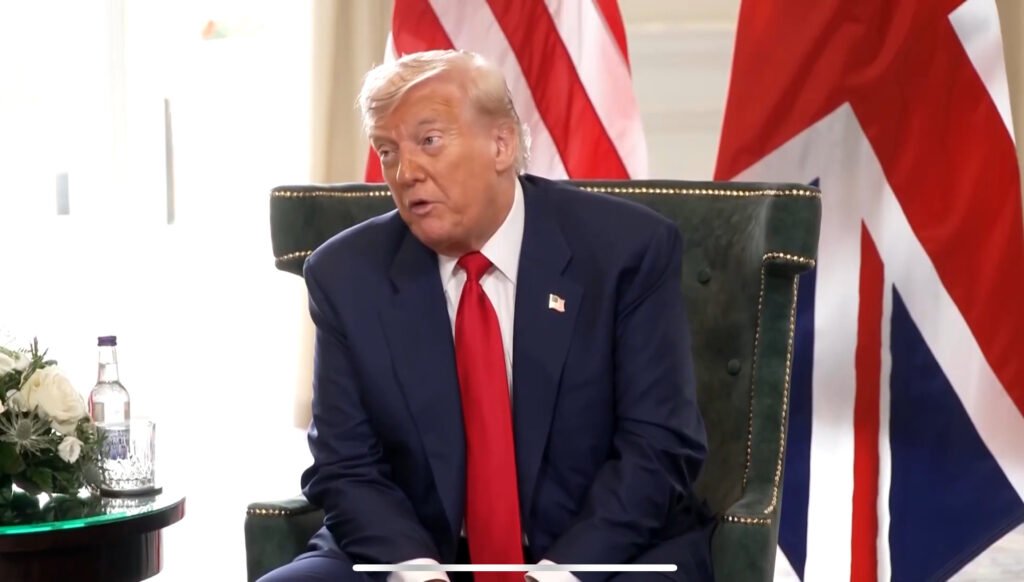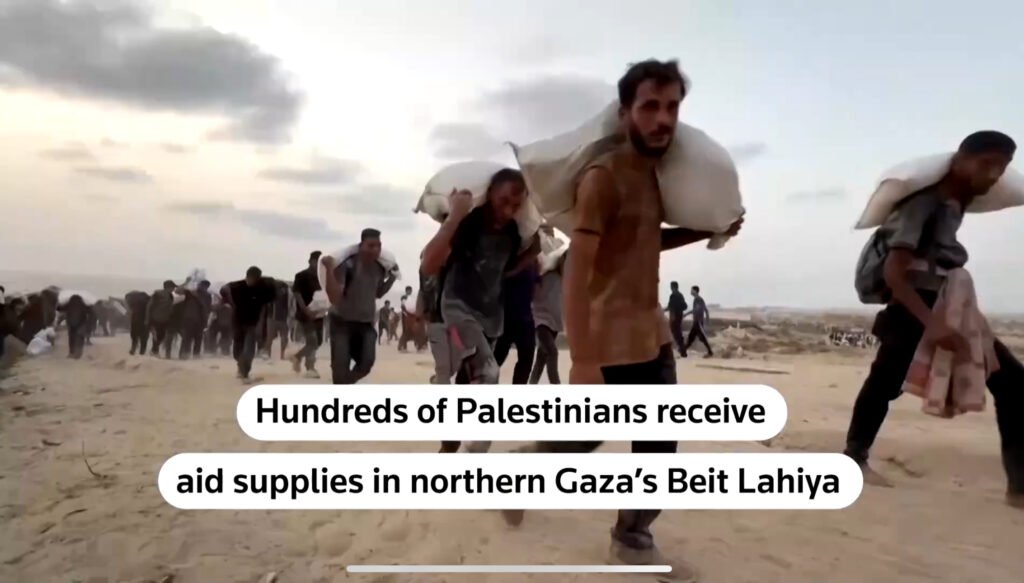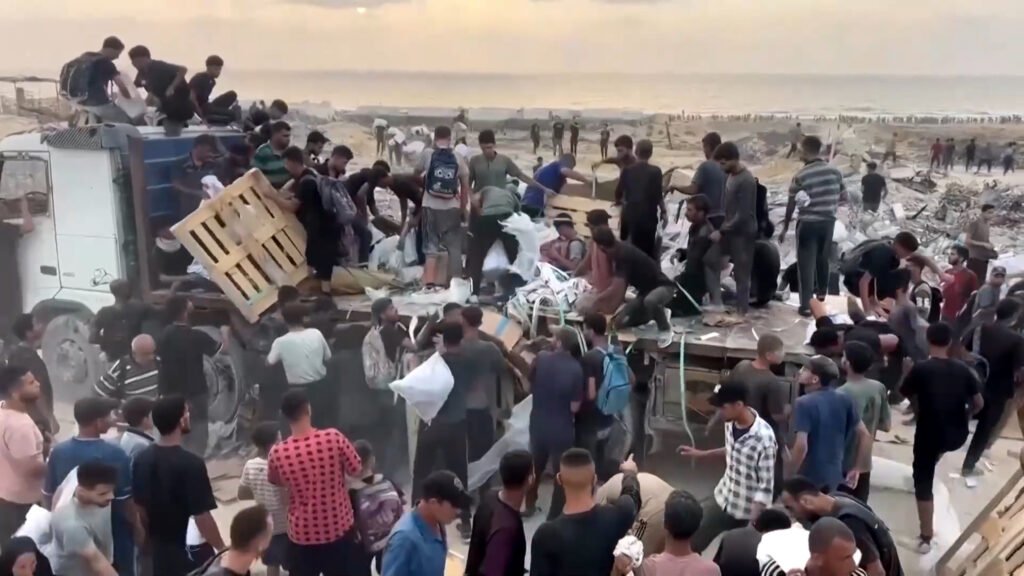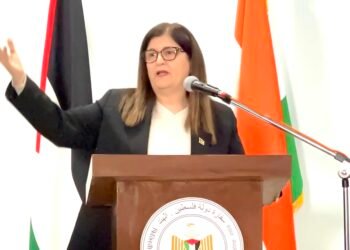A crisis unfolds in real time, exposing fracture lines within the Western alliance as Gaza’s humanitarian catastrophe deepens. Recent U.S. visa restrictions on Palestinian Authority (PA) and Palestine Liberation Organization (PLO) officials, coupled with former President Donald Trump’s blunt trade threats against countries backing Palestinian statehood, reveal more than tactical policy shifts, they mark a fundamental fracture in how the West approaches the Israeli-Palestinian conflict.
This fracture is particularly visible among the Group of Seven (G7). While united in confronting Russia over Ukraine, these traditional allies are increasingly at odds over Palestine. Canada, France, and the United Kingdom now plan to recognize Palestinian statehood at the United Nations this September, motivated less by confidence in Palestinian diplomacy and more by desperation over Gaza’s worsening humanitarian disaster. In stark contrast, the United States doubles down with sanctions and punitive trade measures, intensifying diplomatic strains as humanitarian collapse and political gridlock collide.
On Thursday, the U.S. State Department imposed visa restrictions on PA and PLO officials, accusing them of obstructing peace and internationalizing the conflict through forums like the International Criminal Court (ICC). Deputy Spokesperson Tommy Pigott framed the policy as a routine, biannual review, unrelated to European movements toward Palestinian recognition. Yet the timing is telling, coinciding with a sharper U.S. stance towards Palestinian diplomacy and signaling a hardening posture to enforce limitations on the PA and PLO while supporting Israel’s military strategy.

Former President Trump has escalated the confrontation dramatically. Responding to Canada’s support for Palestinian statehood, he warned on Truth Social:
“Wow! Canada has just announced that it is backing statehood for Palestine. That will make it very hard for us to make a Trade Deal with them.”
His threat to impose a 35% tariff on Canadian goods outside the existing USMCA agreement, if no deal is made by August 1, transforms this geopolitical dispute into an economic battlefield demonstrating how Middle East diplomacy increasingly entangles with the resurgent force of economic nationalism.
Israel welcomed the sanctions as a moral victory. Foreign Minister Gideon Saar praised the U.S. for “moral clarity” while condemning countries recognizing a “virtual Palestinian state” as displaying “moral distortion.” Defense Minister Israel Katz and Justice Minister Yariv Levin renewed calls to annex the West Bank entirely. Prime Minister Benjamin Netanyahu remains unyielding: his government insists the conflict must continue until Hamas is disarmed and removed from Gaza, rejecting any renewed role for the PA in the enclave. Ceasefire talks falter as Israel presses for a maximalist outcome.
Allies Break Ranks Amid Humanitarian Disaster
Meanwhile, Canada, France, and the U.K. are publicly breaking from Washington’s line. Canada’s Prime Minister Mark Carney bluntly stated, “Canada condemns the fact that the Israeli government has allowed a catastrophe to unfold in Gaza,” warning, “The possibility of a two-state solution is being eroded before our eyes.”
French President Emmanuel Macron, once dismissive of “emotional recognition,” reversed course in July as the Gaza crisis worsened. He worked closely with Carney and British Prime Minister Keir Starmer, who confirmed the U.K. would recognize Palestine in September unless Israel presents a viable peace plan. These leaders coordinated closely through the summer, emboldened by Trump’s muted initial response to France’s announcement.

Carney emphasized that “International cooperation is essential to securing lasting peace and stability,” and vowed that Canada would lead efforts toward that goal. However, Canada’s moral stance comes with steep costs, risking punitive tariffs from the U.S. even as it recently scrapped a digital services tax targeting American tech firms to appease Washington. With $412 billion in US-bound exports last year, the economic stakes for Canada are enormous.
Behind these diplomatic maneuvers lies the heartbreaking reality in Gaza. Since Hamas’s militant assault on October 7, 2023, which killed 1,200 Israelis and abducted 251 hostages, Israeli military response has killed over 60,000 Palestinians, according to Gaza health authorities. Starvation has shifted from threat to daily horror. Recently, over 156 deaths from malnutrition, including at least 90 children, have been reported. One resident told Reuters of trying repeatedly to get a sack of flour, only to be robbed at knifepoint.
Despite devoted efforts, aid flows remain painfully inadequate. The U.N. acknowledges that even during brief humanitarian pauses and safe corridors, shipments are “far from enough.” Civilians face dangers both from Israeli forces and destitute looters.
Ceasefire talks again stalled in Doha, with Israel and Hamas trading recriminations. Israel’s offer included a 60-day truce and selective hostage releases, but disagreements over military withdrawal and Gaza’s political future persist. Qatar and Egypt back a Franco-Saudi initiative calling for Hamas to surrender Gaza’s governance and disarm, demands rejected by both Israel and Hamas. This deadlock extends internally: mothers of hostages are protesting outside Netanyahu’s office, while violence and settler attacks in the West Bank inflame tensions and provoke public outcry in Europe and Canada.
From Taboo to Tactical Necessity
Recognition of Palestine, once taboo among G7 powers, now emerges as a pragmatic tactic to salvage the two-state solution. Spain, Ireland, and Norway paved the way in May; France, Britain, and Canada are now aligning their efforts for a coordinated September recognition at the U.N. The U.S. persists in opposition, wielding its Security Council veto power to block formal recognition, yet over three-quarters of U.N. members already recognize Palestine. Secretary of State Marco Rubio dismisses these developments as “irrelevant,” but analysts disagree.
Richard Gowan of the International Crisis Group notes, “Some of the biggest U.S. allies are catching up with most of the Global South on the Palestinian question… That makes it harder for Israel to dismiss the pro-recognition camp as irrelevant.”
This moment extends beyond Palestine, it reflects shifting legitimacy in international institutions, waning American diplomatic hegemony, and rising confidence among middle powers willing to diverge from Washington.
The Cracks in the Western Moral and Strategic Center
From Washington’s travel bans and trade threats, to Gaza’s famine and Europe’s diplomatic defiance, a new geopolitical order is fracturing old assumptions. Terms like “national interest” and “moral clarity” now carry tangible weight and justify both starvation and recognition.

Starvation in Gaza is not incidental collateral damage; it has become a calculated strategy. Recognition is no charitable act but a political statement, trade is wielded as punishment, and ordinary people, children in Gaza, families under siege pay the ultimate price.
No one knows precisely where Palestine’s future heads next, but one fact is indisputable: the centre of gravity in the West has shifted. The only question remaining is how far this division, and its consequences, will go.
Key Voices That Define This Moment:
“It is in our national security interests to impose consequences…” : U.S. State Department
“Moral clarity” vs. “moral distortion” : Israeli Foreign Minister Gideon Saar
“Canada condemns the fact that the Israeli government has allowed a catastrophe to unfold…” : Canadian Prime Minister Mark Carney
“I will not do an ‘emotional’ recognition.” : Emmanuel Macron, before changing his stance
“The possibility of a two-state solution is being eroded before our eyes.” : Mark Carney
“Wow! Canada recognizes Palestine… Very hard to make a trade deal now.” : Donald Trump
From capitals to Gaza’s broken streets, these statements and policies crystallize a defining fault line, one that will shape not just the Israeli-Palestinian conflict, but the very future of Western alliances and the international order.
– Dr. Shahid Siddiqui; follow via X @shahidsiddiqui
WATCH, LIKE & SUBSCRIBE FOR MORE VIDEO STORIES:

















